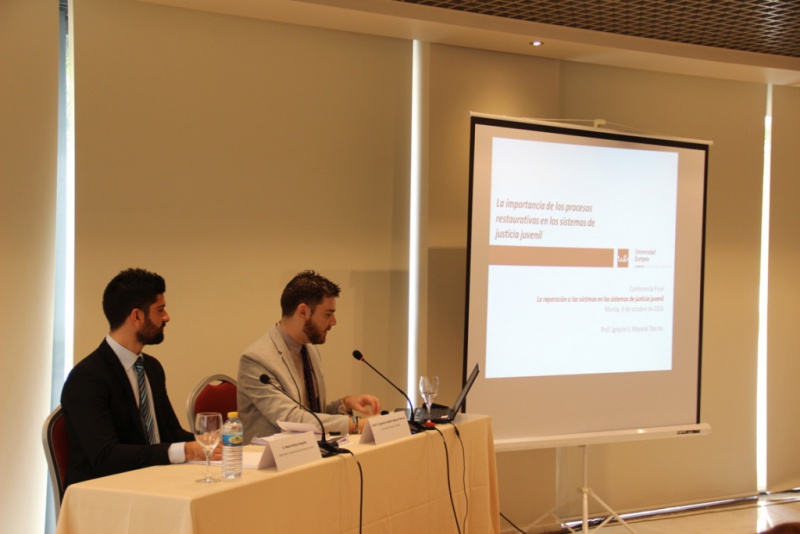On 5 October 2016, the final conference was held for the European REVIJ project in the Siete Coronas Hotel in the city of Murcia, Spain. The REVIJ project (Reparation to the Victim in the European Juvenile Justice Systems: Comparative analysis and transfer of best practices) compares victim reparation measures in different European juvenile justice systems.
This project, funded by the Criminal Justice Programme of the European Union, was led by Fundación Diagrama (Spain) and had partners in several European countries: Diagrama Foundation (UK), Association Diagrama (France), Istituto Don Calabria (Italy), Universidade Catolica Portuguesa do Porto (Portugal) and the International Juvenile Justice Observatory (Belgium).
The conference began with an inaugural lecture from Esther Giménez-Salinas, director of the Pere Tarrés Chair of Social and Restorative Justice and emeritus professor of penal law and criminology at Ramon Llul University. After this opening presentation, a round-table discussion was held focusing on the role of the victim in judicial proceedings. Present for the discussion were Marta María Aguilar, professor of law, and Rosa María Patró, professor of psychology, both from the University of Murcia.
Subsequently, Ignacio Valentín Mayoral, professor at the European University of Madrid’s Department of Social Sciences, focused on the importance of restorative processes within juvenile justice systems. Finally, the project’s partners presented their findings on the implementation of restorative practices with victims of youth crime in their respective countries.
Closing remarks were made by Verónica López, head of Family Affairs and Social Policies at the regional government of Murcia’s Department of Family Affairs and Equal Opportunities, and Rafael Pérez Cuadrado, executive director of Fundación Diagrama. Both speakers placed equal emphasis on the relevance of projects such as REVIJ in knowledge building and on the coordinated work their respective institutions carry out in the field of juvenile justice.
Their remarks marked the end of an event whose aim was to inform a range of professionals working within the field of restorative justice as to the results obtained through the REVIJ project, as well as to offer a global vision of victim reparation within juvenile justice systems.






